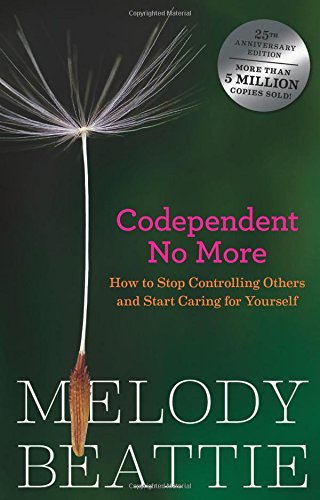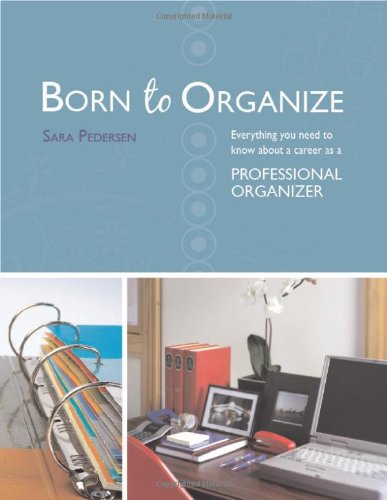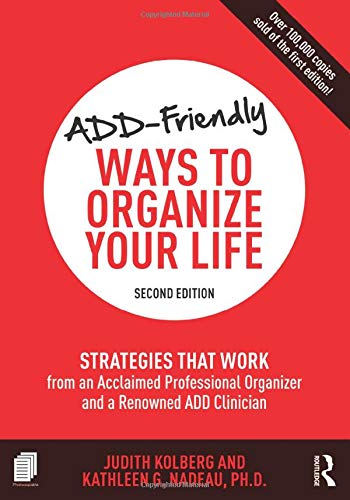(Part 3) Top products from r/hoarding
We found 21 product mentions on r/hoarding. We ranked the 76 resulting products by number of redditors who mentioned them. Here are the products ranked 41-60. You can also go back to the previous section.
41. Clutter Control: Putting Your Home on a Diet
Sentiment score: 1
Number of reviews: 1
 Show Reddit reviews
Show Reddit reviews43. Adult Children of Alcoholics Syndrome: A Step By Step Guide To Discovery And Recovery
Sentiment score: 0
Number of reviews: 1
The Adult Children Of Alcoholics Syndrome: From Discovery To Recovery
 Show Reddit reviews
Show Reddit reviews44. Toxic Parents: Overcoming Their Hurtful Legacy and Reclaiming Your Life
Sentiment score: 1
Number of reviews: 1
Bantam
 Show Reddit reviews
Show Reddit reviews45. Home Comforts: The Art and Science of Keeping House
Sentiment score: 1
Number of reviews: 1
Detailed information for cleaning your home.
 Show Reddit reviews
Show Reddit reviews46. Home Comforts: The Art and Science of Keeping House
Sentiment score: 1
Number of reviews: 1
Scribner
 Show Reddit reviews
Show Reddit reviews47. Trash: An Innocent Girl: A Shocking Story of Squalor and Neglect
Sentiment score: 0
Number of reviews: 1
 Show Reddit reviews
Show Reddit reviews48. Unger Professional Nifty Nabber Reacher Grabber Tool and Trash Picker, 36-inch
Sentiment score: 1
Number of reviews: 1
36-inch Nifty Nabber extends your reach low and high without the need to bend down or climb a stool or ladderLightweight aluminum reacher features rubber-tipped grippers to prevent damageLong reach grabber tool features a built-in magnet to pick up metal objectsErgonomic grip makes it easy to useHea...
 Show Reddit reviews
Show Reddit reviews49. Constructive Living (Kolowalu Books (Paperback))
Sentiment score: 1
Number of reviews: 1
 Show Reddit reviews
Show Reddit reviews50. Codependent No More: How to Stop Controlling Others and Start Caring for Yourself
Sentiment score: -1
Number of reviews: 1
Great product!
 Show Reddit reviews
Show Reddit reviews51. Born to Organize: Everything You Need to Know About a Career As a Professional Organizer
Sentiment score: 1
Number of reviews: 1
Used Book in Good Condition
 Show Reddit reviews
Show Reddit reviews52. Clear Your Clutter with Feng Shui (Revised and Updated): Free Yourself from Physical, Mental, Emotional, and Spiritual Clutter Forever
Sentiment score: 1
Number of reviews: 1
Harmony Books
 Show Reddit reviews
Show Reddit reviews53. ADD-Friendly Ways to Organize Your Life
Sentiment score: 1
Number of reviews: 1
ADD Friendly Ways to Organize Your Life Strategies that Work from an Acclaimed Professional Organizer and a Renowned ADD Clinician
 Show Reddit reviews
Show Reddit reviews55. Lighten Up: Love What You Have, Have What You Need, Be Happier with Less
Sentiment score: 1
Number of reviews: 1
 Show Reddit reviews
Show Reddit reviews56. Dirty Secret: A Daughter Comes Clean About Her Mother's Compulsive Hoarding
Sentiment score: 0
Number of reviews: 1
 Show Reddit reviews
Show Reddit reviews57. Clinician's Guide to Severe Hoarding: A Harm Reduction Approach
Sentiment score: 0
Number of reviews: 1
 Show Reddit reviews
Show Reddit reviews58. Inside Animal Hoarding: The Story of Barbara Erickson and her 522 Dogs (New Directions in the Human-Animal Bond)
Sentiment score: -1
Number of reviews: 1
Used Book in Good Condition
 Show Reddit reviews
Show Reddit reviews



> I moved out a few years ago and I couldn't figure out how everyone else kept their homes so tidy. I'd clear up, mop, throw away rubbish, bleach everything and within a week it was back to tiptoe-ing over bags of things and empty food packets and cat litter.
One of the things I realized when I first moved out on my own was that my parents had taught me how to clean, but not when to clean.
Actually, that's not quite accurate. I was taught that when it all became too much (usually about once every two to three months), to devote an whole weekend (or as much as a week during summer vacation) to an all-out, full court press approach to cleaning. Starting on Friday night there would be hours and hours of non-stop sorting, organizing, throwing away, dusting, sweeping, mopping, etc.. It meant giving up an entire weekend, was utterly exhausting, and was extremely demotivating. When I moved out on my own, I never wanted to clean when things got bad because I learned this was how you clean house.
What I eventually figured out is that the best housekeepers--once they have their house where they want it--spend somewhere between 10 and 30 minutes a day maintaining the state of the house. So rather than spending two to three days on one huge deep-cleaning rampage, good housekeepers break cleaning down into small, manageable tasks that only take a few minutes every day. Essentially, they do a handful of daily cleaning tasks, and one slightly larger cleaning task, per day.
It was like a light bulb turning on in my head. I would much rather spend 15 or 30 minutes a day tidying up than three or more days deep-cleaning every two or three months.
If you ever read the classic children's book Little House on the Prairie, you might recall Ma Ingall's housekeeping schedule:
> "Wash on Monday,
>
> Iron on Tuesday,
>
> Mend on Wednesday,
>
> Churn on Thursday,
>
> Clean on Friday,
>
> Bake on Saturday,
>
> Rest on Sunday."
If you've ever read any books on the history of housekeeping (Home Comforts by Cheryl Mendelson is a nice introduction to it), you'll know that the above was the traditional housekeeping schedule for much of American history. Some folks have come up with modernized versions (example), and of course I just posted one here yesterday.
The point of schedules like this is three-fold:
And here's a secret that I learned when I adopted a housekeeping schedule: If something happens and you can't do your routine for a day or two, your house doesn't immediately descend into utter chaos. Trust me when I tell you, it's a LOT easier to recover from missing a couple of days of small tasks that from a giant hoard.
"Wash on Monday" is, at it's essence, the same thing as the "Starting Small" approach mentioned in the Hoarding Resource List in the sidebar. It's breaking down housekeeping into manageable tasks, saying "Today I will work on X, and only X."
What ultimately worked for me was this:
Campbell has owned/run a professional housekeeping service in California for decades, and their service is known for being able to clean a standard-size 1-story home in 15 minutes or less. This book breaks down their cleaning method for the homeowner--Campbell tells you what cleaning tools and chemicals to use (and why), tells you what rooms to start in (and why), tells you where in that room to start (and why), and literally walks you through how to clean an individual room. It is NOT a book of housekeeping "tips", but actual instructions on how to clean in a certain way, and why that way is both effective and efficient.
Campbell's method is now how I clean my house, and I absolutely recommend this book to any recovering hoarder who's gotten past the retaining-items stage and is now trying to develop housekeeping skills. I will state that the very first time you try his cleaning method, it won't take 15 minutes per room because obviously you're starting out learning it. But as you continue to use it and get used to it, you will speed up considerably.
It sounds like right now you have a lot of clutter to get rid of, but it also sounds like you know how to get rid of it and are able to let go, and that puts you WAY ahead of a lot of hoarders. Once you get your apartment back where you want it, I suggest that you:
Finally, if you get to a point in your recovery where you want to start exploring different housekeeping systems, please visit /r/messyhomes. The mod, /u/Bellainara has hoarding tendencies herself, and welcomes people with similar struggles. You can contact her with any questions. The intro post for /r/messyhomes is here.
I can relate to a lot of this. I grew up in a toxic household that gave VERY mixed signals on cleaning and organizing. Your paralysis in cleaning up and completing tasks on time is quite likely due to being neurally wired that way by a fearful and fraught upbringing. It takes directed effort to undo it (often via a trauma-aware therapist) and sometimes also meds.
I dunno if you've read anything about c-PTSD, but if you don't have the means to regularly see a therapist right now, it might help to read up on trauma and its long-term effects. Pete Walker has some good articles on his site. The book Toxic Parents: Overcoming Their Hurtful Legacy and Reclaiming Your Life is also very insightful. And have you seen anyone about your depression? For real, antidepressants helped me a LOT with general motivation.
For learning to stay on task, I found ADD-friendly Ways to Organize Your Life to be super helpful. I've never been diagnosed with ADHD; it was just a really good starting point for someone like me. FlyLady is a very gentle, positive site for learning about how to tidy up, so check that out.
Also, I promise not all Millennials are Konmari minimalists who will judge you forever for having stuff. I've seen all levels of stuff in the homes of people my age or younger. Friends were on the whole way more chill (maybe too chill) than I expected about the condition of my apartment over the years.
The book "Clear Your Clutter with Feng Shui" by Karen Kingston might fit the bill. It was the first book I ever read that broached the subject of getting rid of things, and it was a good start.
I was going to recommend "Stuff" by Randy Frost and Gail Steketee. Alas, it has "Compulsive Hoarding and the Meaning of Things" as the subtitle. It's still excellent though, and I'd recommend it to you to read because it helps understand what is behind the hoarding. Maybe you can find some strategies to support her without her noticing.
> (Me and my back don't have the best relationship, and bending over > for literally anything is not my area of expertise.)
Get yourself one of these:
https://www.amazon.com/Unger-Professional-Nifty-Nabber-36/dp/B0000V0AGS/ref=pd_lpo_vtph_121_tr_t_3?_encoding=UTF8&psc=1&refRID=TGAAZM9RNCT10Q1MJY23
Best $20 you'll ever spend and makes picking up a cinch.
You can thank me later! :P
Have you read Constructive Living?
Here's a quick youtube review of the book.
It's a short, but an interesting counterpoint to your idea that she needs to fix herself emotionally before she can take action.
Ah. This book may help you.
Perhaps respect and safety . . . .
And a problem and the source of the problem can be different things.
Dirty Little Secret by Jessie Sholl is another good book on the subject.
I agree very similar to ACOA, ie children of alcoholics. Before there was anything on hoarding, this helped me a lot
https://www.amazon.com/Adult-Children-Alcoholics-Syndrome-Discovery/dp/0553272799/ref=sr_1_6?ie=UTF8&qid=1526502459&sr=8-6&keywords=adult+children+of+alcoholics+book
Here it is on Amazon. Come back and remind us when it's available in the U.S. http://www.amazon.com/Trash-Innocent-Shocking-Squalor-Neglect/dp/075355559X
Once again, thank you for taking the time.
Your words are extremely helpful.
Your idea of focusing on what I can do is very helpful.
This also goes very well with what I am learning from my reading in [Codependent No More] (http://www.amazon.com/Codependent-No-More-Controlling-Yourself/dp/0894864025).
I know this is a process and I can only control myself, but I find it to be such an uphill battle cleaning something up after my wife only to find it almost immediately filled again with clutter. Or seeing my kids learning these bad habits. This coupled with the condemnation from her for doing her work is very difficult for me. I think this is why learning to focus on what "I" can control as you (and the books) suggest is so important.
Many thanks internet friend.